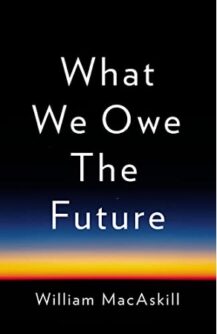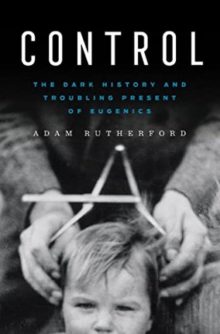An end-of-year collection of interesting and insightful passages.
Not idly, but attentively
“[F]or some reason, we think of the tourist who has planned out the entire trip as rational and the tourist who builds in time for ‘nothing’ … as ‘aimless.’ ….
“Sometimes it’s better to sit and wait and watch and see what happens. Sometimes doing your utmost means merely waiting. But it’s not waiting idly. It’s waiting attentively. It’s about paying attention. Sometimes doing your utmost means doing nothing but being ready for what comes next. Slowing down can help you see it, when it arrives.”
— Russ Roberts, Wild Problems: A Guide to the Decisions That Define Us, reviewed in “Data and drama, studies and stories, and guidance for philanthropic decision-makers from Wild Problems,” August 15, 2022
All future lives
“[N]ow imagine that you live all future lives, too. Your life, we hope, would be just beginning. Even if humanity lasts only as long as the typical mammalian species (one million years), and even if the world population falls to a tenth of its current size, 99.5 percent of your life would still be ahead of you. On the scale of a typical human life, you in the present would be just five months old. And if humanity survived longer than a typical mammalian species—for the hundreds of millions of years remaining until the earth is no longer habitable, or the tens of trillions remaining until the last stars burn out—your four trillion years of life would be like the first blinking seconds out of the womb. The future is big.
“If you know you were going to live all these future lives, what would you hope we do in the present?
…
“Longtermism is about taking seriously just how big the future could be and how high the stakes are in shaping it. If humanity survives to even a fraction of its potential life span, then, strange as it may seem, we are the ancients: we live at the very beginning of history, in the most distant past. What we do now will affect untold numbers of future people. We need to act wisely.”
— William MacAskill, What We Owe the Future, reviewed in “Some narrowness in longtermism,” September 23, 2022
Absolutism, imperiousness, mismanagement, ineptitude, and fear
“Gilded Age philanthropy produced resentments where its donors expected gratitude and admiration. In universities the faculties chafed at the control of the rich and powerful who held the power of the purse. Horace David, one of the university’s original trustees and one of its few discerning ones, described Leland Stanford Junior University between its founding and Jane Stanford’s death as a system of absolutism, a place rotten with imperiousness, mismanagement, ineptitude, and fear. Jane Stanford, a woman supposedly without enemies, cultivated enmity and harvested a bountiful crop.”
— Richard White, Who Killed Jane Stanford?: A Gilded Age Tale of Murder, Deceit, Spirits and the Birth of a University, reviewed in “Who killed Jane Stanford?,” November 3, 2022
Eugenics
“It is not clear what the motivation was for the Rockefeller Foundation to continue to fund German research into ideas of racial hygiene before and after Hitler’s rise to power, and the charity had all but withdrawn support before the onset of war in 1939. Nevertheless, it had provided an essential financial base for research that was wedded to the ideology that defined the Third Reich’s eugenics policies. [German eugenicist Otmar Freiherr von] Verschuer’s assistant, Josef Mengele, would take this idea to heart, with unimaginably cruel experimentation on twins in the concentration camp at Auschwitz throughout the war.”
— Adam Rutherford, Control: The Dark History and Troubling Present of Eugenics, reviewed in “Philanthropy in Control,” December 6, 2022
LLC freedom
“[F]or ultra-rich donors like [Priscilla] Chan and Zuckerberg, the LLC improves on conventional philanthropic platforms. A generation before, creating a philanthropic vehicle without securing a tax-exemption for it might easily have been legal malpractice; tax-exempt foundations represented the obvious choice. By the time of the Chan Zuckerberg Initiative’s founding, the philanthropy LLC had become a proven alternative. …
“LLC adopters cite its operational versatility as the key to its appeal. And employing a philanthropy LLC undoubtedly eliminates countless burdens the traditional foundation format imposes. Since 1969, a series of excise taxes have served as lighthouses marking hidden shoals—entanglement with business or politics—perceived as existential threats to philanthropy. Philanthropy LLCs blithely ignore those risks and the safeguards built to guard against them. Their funders accept a moderately higher tax burden in exchange for freedom to pursue their vision of the good unfettered by foundation law’s limitations.”
— Dana Brakman Reiser and Steven A. Dean, For-Profit Philanthropy: Elite Power and the Threat of Limited Liability Companies, Donor-Advised Funds, and Strategic Corporate Philanthropy, reviewed in “Big Philanthropy and the benefits—and limits—of the bygone ‘Grand Bargain,’” December 19, 2022




